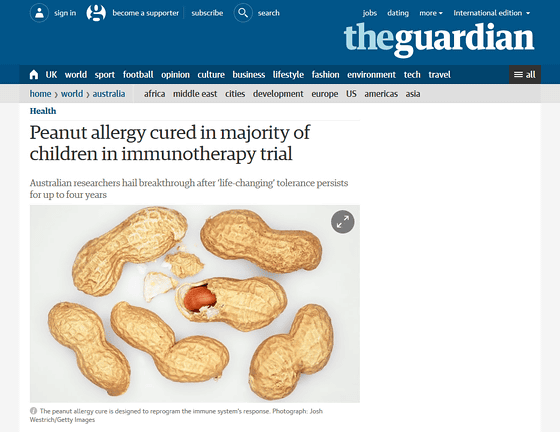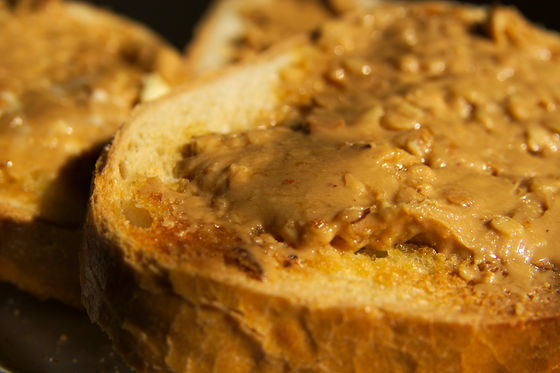A new treatment that can overcome peanut allergy is successful, 70% lasts for 4 years

ByU. S. Department of Agriculture
Approximately 72 million people, 1% of the world's population, have peanut allergy, and in Europe and the United States the most common deaths from anaphylactic shocks are peanut allergy. To cure such peanut allergy "Hyposensitization therapySmall-scale clinical trials were conducted using this drug, and it was announced that two-thirds of children who received treatment succeeded in curing peanut allergy and the effect lasted 4 years.
Peanut allergy cured in majority of children in immunotherapy trial | Australia news | The Guardian
https://www.theguardian.com/australia-news/2017/aug/17/peanut-allergy-cured-in-majority-of-children-in-immunotherapy-trial

Peanut allergy cure for children could be close after Australian researchers make major breakthrough | The Independent
http://www.independent.co.uk/life-style/health-and-families/peanut-allergy-cure-children-nut-australia-research-breakthrough-mimi-tang-probiotic-protein-a7897606.html
Professor Mimi Tan of the Murdoch Children's Research Institute in Australia said that oral immunotherapy, one of the hyposensitization therapies that ingest peanuts in small amounts each time, and microorganisms that have a good effect on the human body Good bacteria) that is "Probiotics"PPOIT (Probiotic with Peanut Oral Immunotherapy)" has been developed. With this treatment, the response of the immune system to peanuts is reprogrammed and ultimately to obtain immune tolerance.
Professor Tan conducted PPOIT therapy for children with 48 peanut allergies, and added peanut protein and a kind of probiotics "Lactobacillus rhamnosus"Or a combination of placebo gradually, in doses of 18 mg daily. As a result, 82% of children who underwent PPOIT therapy were considered immune tolerant to peanuts. In the group receiving placebo, 4% gained immune tolerance.
Four years later, children who acquired immune tolerance continued to eat peanuts as part of their regular diet, 70% of whom passed the test to confirm long term immune tolerance. Professor Tan believes that this treatment can also be applied to other food allergies and has the potential to become a light of food allergies patients worldwide, with small clinical trials. However, before the treatment is open to the public, it is necessary to demonstrate effectiveness in large-scale clinical trials, and it is expected that it will take several years until then.

ByRoss Burton
Related Posts:







